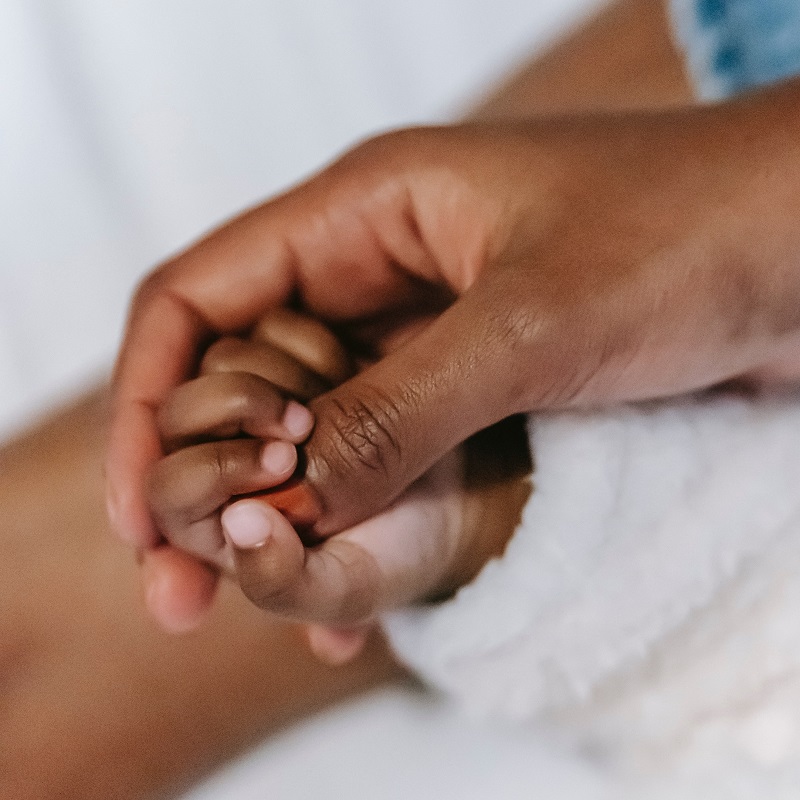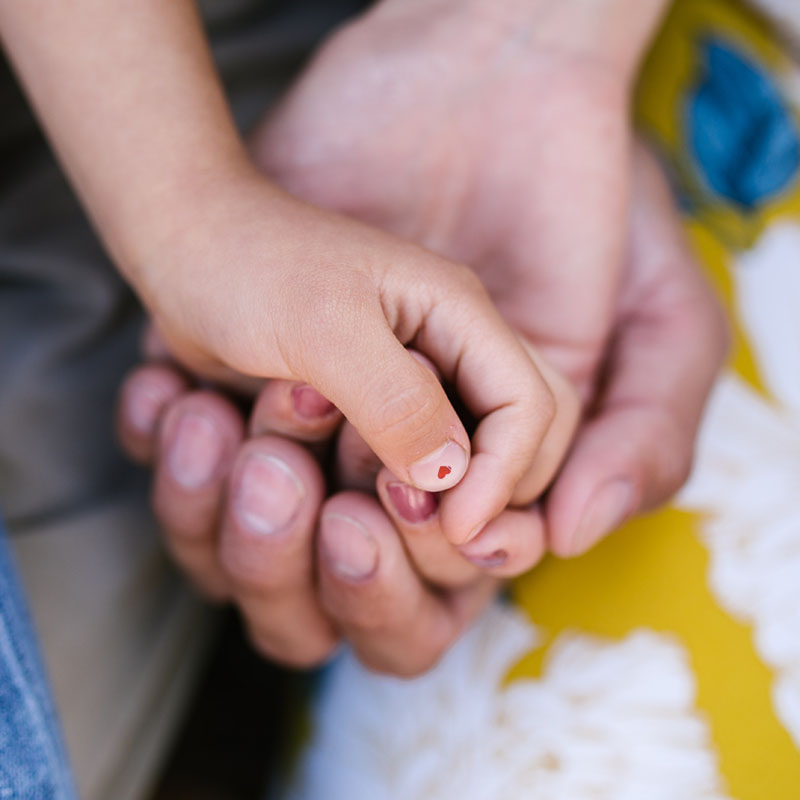


Especially for first-time parents, connecting to an infant can be challenging. Along with the adjustment that the family makes to this new person and the mental, emotional, and physical toll that this adjustment demands, there is confusion about what the baby may need. Others offer advice on how to be a parent, but there is so much choice in what approach to take and even what products to buy. Then the infant becomes a toddler and the family faces a whole new set of challenges in trying to negotiate what the child wants in the moment with what the family requires. Complicating matters even more is that who we are as parents is influenced by how we were parented, and without insight into that process, we may unwillingly be passing on the same kind of interactions to our children from the start that we were hoping to avoid.
The purpose of parent-child psychotherapy (also referred to as dyadic therapy) is to help caregivers gain insight about what works for their parent-child relationship within the context of their family and personal history. During our work together, I am there with you as you engage with your child to reflect on your experiences, to offer support, and to develop your confidence as a parent. In the process, I also subtly provide techniques for fostering child development. Throughout, I use an informed approach, grounded in attachment and child development theories, to help you to set a foundation for a strong and loving relationship. Parent-child psychotherapy sessions are one hour long, and are ideal for parents and children from birth through age 3. They are typically held weekly.
Sometimes we all need some help with parenting. As children grow, they constantly require an adjustment on our part. A toddler, for instance, calls for a different approach than a teenager, even though some of the issues that the two are struggling with - separating from parents, developing a sense of self, testing limits, etc. - are actually quite similar. Parent consultations are meant specifically to help with these kinds of adjustments and everyday challenges. Examples of such challenges include:
I am also able to help with making sense of Early Intervention (EI) related and other psychological assessments. Standard parent consultations are one hour long and are offered on an as-needed basis. During that time, we take an in-depth look at the presenting struggles and develop ways in which these struggles can be addressed.


Pregnancy is a unique time. In addition to the physical and hormonal changes, the mind becomes full of complicated wonder. What will this baby be like? What will the birth be like? How will I manage? How will my other children manage? Will I bottle-feed or breast-feed? What should I set up? Who do I need to call? Where do I even start?
For some with a mental health diagnosis, a trauma history, and/or minimal support, there are even more questions, as past physical and emotional losses - those of a parent, partner, or child, for instance - have a way of creeping in our psyche to affect how we think about new events in our lives. Will this be a viable pregnancy? What if I don't want the baby? How will I react to people poking and prodding my body? What if my body suffers? How do I tell those around me about the pregnancy? How do I help them to understand what I am going through? Will I be able to do this alone if I need to? Am I good enough?
Therapy during pregnancy is meant to assist with these types of questions and more, with the hope of minimizing stress and providing a nurturing emotional environment at a time when such an environment is arguably needed the most. Together, we can think through your hopes and needs to figure out how we can get you as close as possible to those, whatever the circumstances.
Pregnancy support sessions are structured in the same way as individual psychotherapy, but with an additional bump in the room. The sessions are 45-minutes long and held weekly.
Whatever your reasons for seeking support, individual psychotherapy can help. It is meant to gain insight into yourself and your circumstances so that you can make the necessary adjustments in your life to overcome any presenting conflicts and struggles.
When we first meet, my main goal is to get to know you and to establish a working relationship, so that you can feel comfortable in the space. While I may ask a lot of questions in the beginning, there is no pressure to answer all of them. I meet you where you are emotionally. Then, once we identify your goals, I usually let you take the lead in what we discuss, using arising opportunities to pursue your goals more actively.
As I work, I often revisit the presenting problem to view it from varying lenses. If I see, for instance, that there are relational difficulties, then I consult attachment and interpersonal theories, and alter my approach accordingly. In the process, I remain mindful of your subjective experience and external reality. I consider the influence of family, culture, and society. Additionally, I check in frequently for perspectives on how the therapy is going to ensure that we are collaboratively working towards improvement.
Some common struggles that I work with include, but are not limited to:
The initial intake appointment is usually at least one hour (60 minutes) long. All subsequent sessions are typically 45 minutes.


As parents, we all want the best for our children. However, sometimes we have trouble knowing how to help them and, in turn, ourselves. We need someone to identify the underlying issue and present opportunities to resolve it.
Play therapy can be extremely helpful in providing children with the space to work through their struggles. It is indirect, nonjudgmental, and safe in part because it offers some distance from what can otherwise feel too shameful or painful.
The process for child therapy is similar to that of individual therapy: I meet with the parent and child initially (whether together or separately) to gather information, establish a relationship, and identify the goals for treatment. Then, in subsequent sessions, I follow the child's lead in allowing the narrative/play to unfold. When a more direct approach is needed, as with an older child, then I am able to offer that as well - whatever will work best.
Some common struggles that I work with include, but are not limited to:
Please note that, for any change to happen, the family has to be involved and on board. When working with your child, I require at least one parent/guardian session (parent collateral contact) each month.